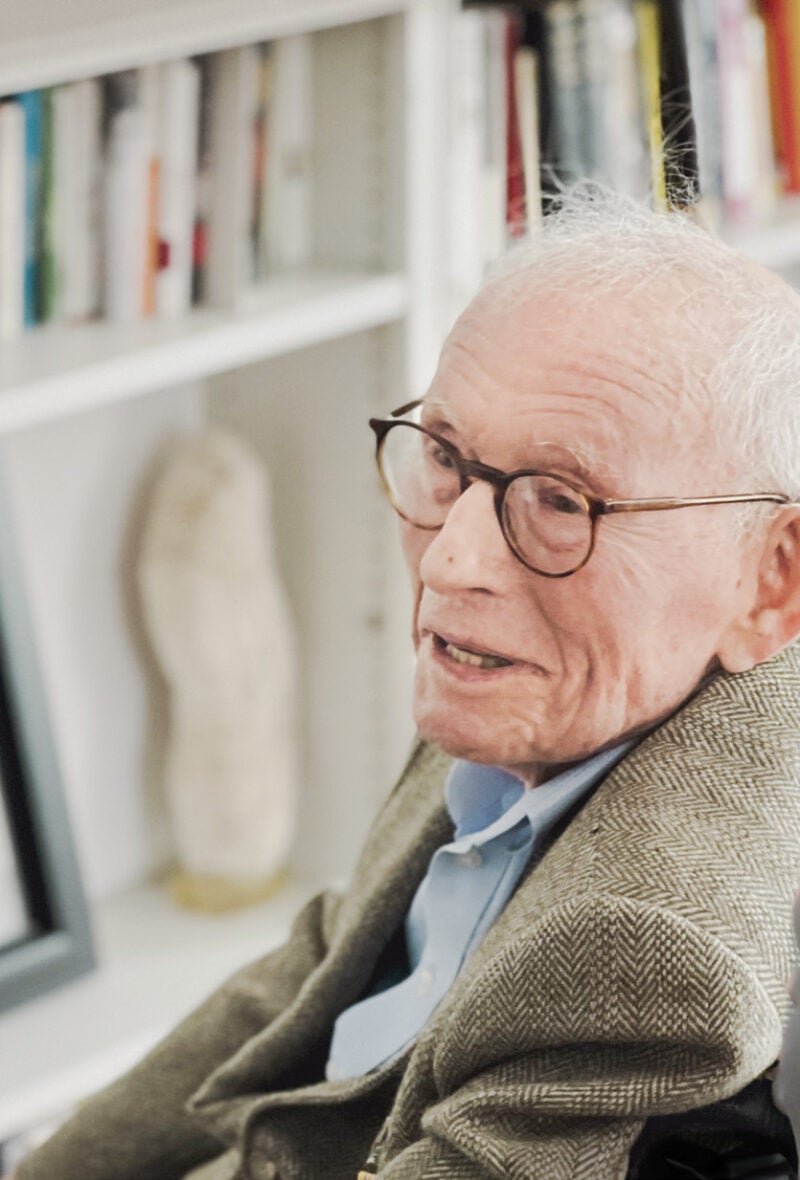Clark W. Maser ’51 still remembers his first sight of Europe on Oct. 20, 1944 — the eerie black rock of British Gibraltar framed against the glittering lights of the Spanish towns in the distance.
But the 19-year-old Chicago native wasn’t on holiday. Slight and bespectacled, Maser was riding in an overloaded troop transport, on his way to Marseille to help liberate France from Nazi occupation.
Seventy-seven years later, at a ceremony in Cambridge, Massachusetts, this spring Maser was proclaimed a knight of the Legion of Honor. During the event held at the official residence of France’s consul general for Boston, Consul General Arnaud Mentré summed up Maser’s contributions. “You are a true hero for the United States, but you are also a hero for us, the French people,” he said.
Looking around the crowd assembled to honor him, including his son, Minot Maser, the 96-year-old veteran displayed both pride and surprise. “I never realized I would end up here,” he said.
Despite the passage of time, Maser remembers sailing into Marseille’s harbor, peering at the scuttled ships littering the channel and the large piles of rubble and twisted metal where docks and buildings had previously stood. A member of the 103rd Infantry Division, he was soon marching 20 miles inland to join the fight, commenting later that he had been so tired that he’d slept as he walked.
But before he experienced combat, he took advantage of the opportunity to absorb some local culture, a production of “La Traviata,” his first opera. His most vivid memory of the performance was how emaciated the performers were after the years of occupation.
During the long trip across the Atlantic, Maser had volunteered to use his eighth-grade French to translate for his superiors. That, combined with his background running track in high school, made him an ideal company messenger.
But Maser’s time in France proved to be brief, painful, and heroic. Little more than a month after they landed, his company was attempting to liberate Itterswiller, an Alsatian village in the hills along the Vosges Mountains. As Maser ran messages back in forth, he saw many of his 160 comrades killed as Nazi mortars, set to explode in the trees above, rained deadly shrapnel on their heads.
Soon Maser himself was struck twice, once in each thigh, an experience he compares to being “rammed by a telephone pole.” When a team of medics attempted to carry him back to a field hospital, he was hit again.
Shipped home, he was awarded a Purple Heart and a Bronze Star.
He attended college on the GI Bill at the University of California, Berkeley. Upon graduation, Maser moved across the country to Cambridge to study law. At Harvard Law School, he says, his favorite professor was Archibald Cox ’37, who later gained fame as the Watergate special prosecutor.
Maser then moved to San Francisco to practice his chosen profession. What did he love about the law? “I just thought that people weren’t as well treated as they could have been. I always tried to bend over backward to give them advice.” During a long career, he represented clients as different as Shirley Temple Black and U.S. Steel. Having picked up in France a lifelong interest in international relations, Maser also joined the Northern California World Affairs Council, eventually serving as its president.
Of his time in France, Maser says that he is glad he had the opportunity to do his part and that “it is always a good time to serve one’s country.” Today, he advises others to “seek those opportunities whenever you can.”
